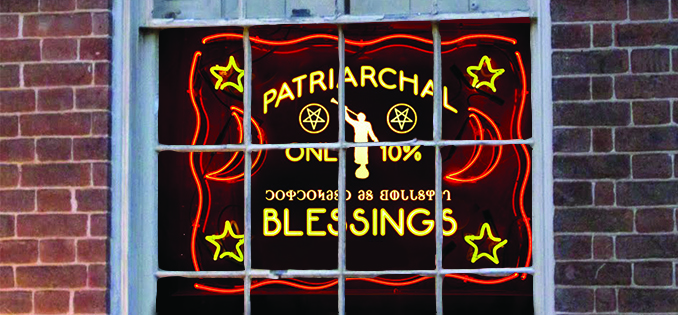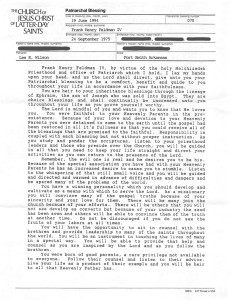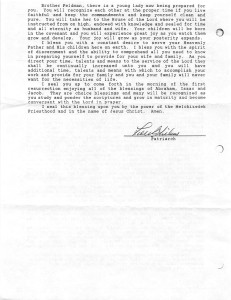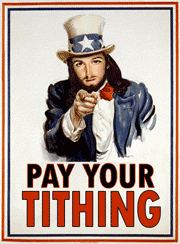Last Friday morning my Mormon mother called me with a warning, “be careful this weekend.” I was a little taken aback so I asked for clarification. “I was painting out back and had an impression. You were involved.” I acknowledged hearing her warning and–annoyed–ended the call abruptly.
This was not the first bit of “personal revelation” my mother has directed toward me, but it was the first in a very long time. I had almost forgotten that this was a habit of hers. Growing up, mom had impressions from the “still small voice” all the time. In fact, to a casual observer the voice probably seemed large and loud.
Mom had a bumpy road toward family prophetess though. When I was around eight years old, she scraped her leg really bad on the concrete decking surrounding the swimming pool. The “Holy Ghost” had whispered to her not to go outside, and she heeded the warning until she noticed that a planter on the other side of the pool was turned the wrong way. She slipped out the back door, corrected the planter, and while backing up to admire her work, fell backwards into the pool dragging one of her legs across the sharp little rocks embedded into the concrete.
Later that day, she commented that when you fail to listen to “His” promptings the Lord steps aside letting you face the consequences of your actions. I was mesmerized, and over the next decade, I would witness her sharing premonitions about black ice, ladders, river trips, and anything else that would be of mild concern for a typical mother.
Her prophesying probably seems fairly innocent, and my rudely getting off the phone probably seems, well… rude. But her phone call on Friday stirred up old emotions, and I feel like it was violation of the unspoken terms of our almost fifteen-year truce on the topics of faith and religion. I let her tell me about the goings-on at church, and she never ever asks me when I’m going to return to the gospel (or any other crap like that). I keep details about my life to a minimum. Everything works great!
I don’t know if I have any answers about how to deal with this. In fact, I don’t even think I’m asking any questions. My f’ed up relationship with my mother (and father for that matter) is what it is. I guess what intrigues me the most about her warning and the overall effect it had on my weekend is that I did change my behavior. I was more careful. It clearly wasn’t for the reason she had hoped——that I would start trusting her faith.
I just didn’t want to die in a car accident and leave her feeling like she was right.




 I need to cool off and remind myself that this is all moot. Keep repeating to yourself, Frank, “I don’t believe in any of this crap.” (It’s so fun, though.) I should take this moment to point out the obvious in that Mormons aren’t Christians because no Mormon would ever get an awesome tattoo like the one to the right.
I need to cool off and remind myself that this is all moot. Keep repeating to yourself, Frank, “I don’t believe in any of this crap.” (It’s so fun, though.) I should take this moment to point out the obvious in that Mormons aren’t Christians because no Mormon would ever get an awesome tattoo like the one to the right.
